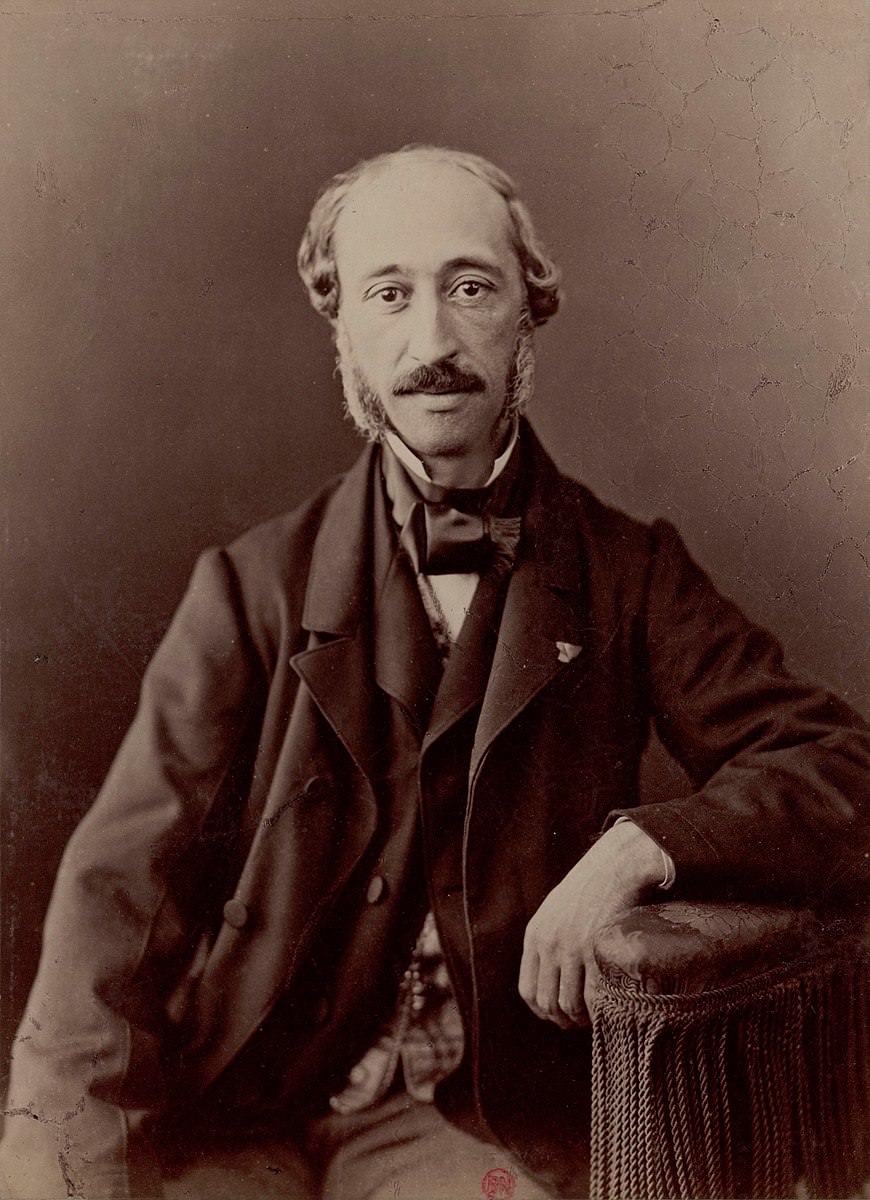World
On This Day in Science - March 24
By Jake Beardslee · March 24, 2024

Join us as we unravel the captivating stories behind these scientific milestones, celebrating the inquisitive minds and tenacious spirits that dared to push the boundaries of what was once thought impossible.
Let's explore the scientific events that occurred on this day, March 24. Unsplash
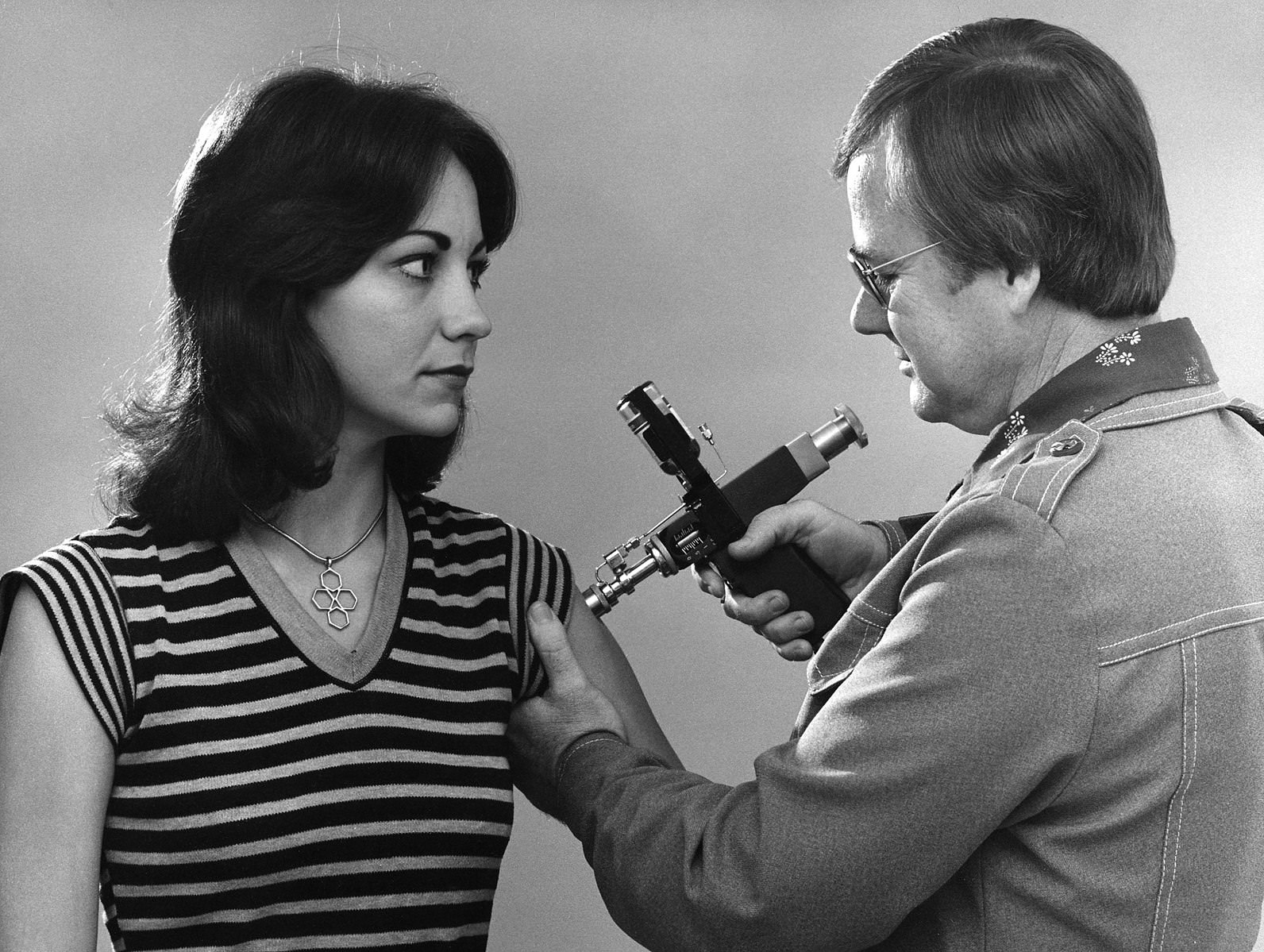
Swine Flu Vaccination Program
On March 24, 1976, President Ford called for a nationwide $135 million program to vaccinate the entire U.S. population against swine flu, following advice from medical experts who feared a potential pandemic. Centers for Disease Control and Prevention (CDC)/Wikimedia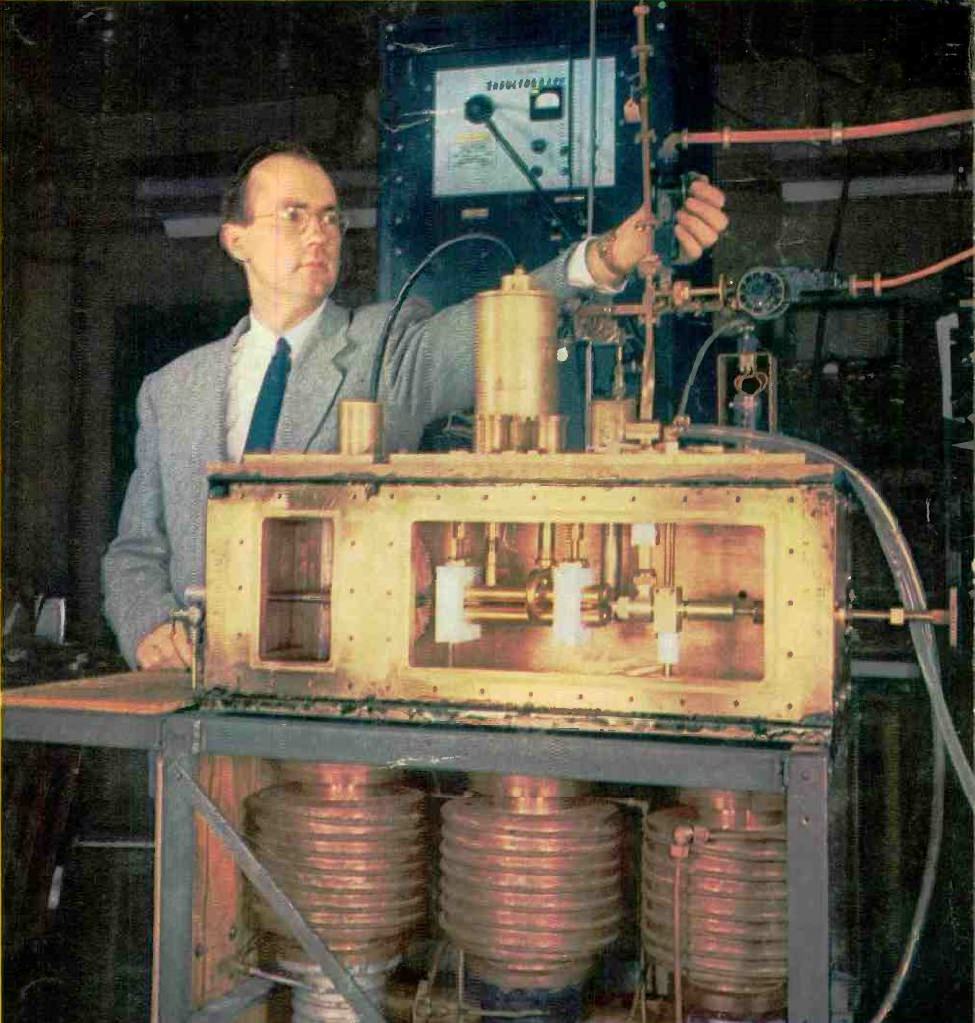
MASER Patented
Charles Townes patented the "MASER" (Microwave Amplification by Stimulated Emission of Radiation) on March 24, 1959, an invention that amplifies and produces electromagnetic energy from excited molecules or atoms. Dan Rubin/Wikimedia
Offshore Oil Rig Milestone
The first seagoing oil drill rig capable of operating in over 100 feet of water was placed into service by C.G. Glasscock Drilling Co. on March 24, 1955, marking a significant advancement in offshore drilling. ENERGY.GOV/Wikimedia
Rotary Disk Plow Invention
On March 24, 1896, Clement Hardy was issued a patent for the rotary disk plow, a revolutionary design that allowed for more efficient plowing with reduced machinery weight. Percy Benzie Abery/Wikimedia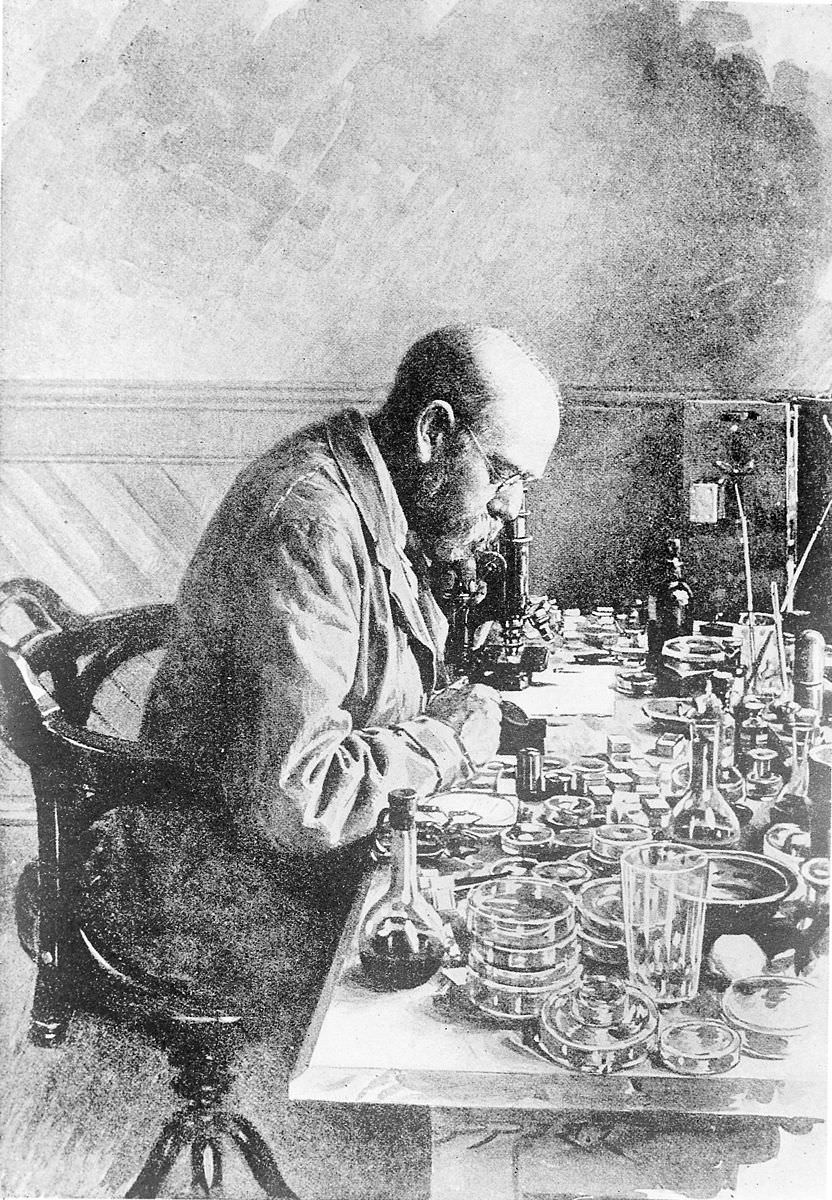
Tuberculosis Breakthrough
German scientist Robert Koch declared his discovery of the bacillus responsible for tuberculosis to the Berlin Physiological Society on March 24, 1882, a groundbreaking achievement that led to the development of Koch's postulates. Wellcome Images/Wikimedia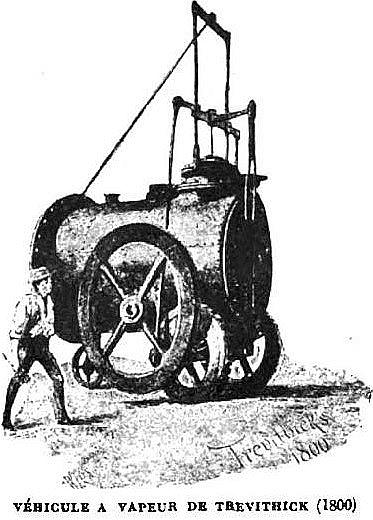
Road Locomotive Patented
On March 24, 1802, Richard Trevithick took out his first patent for the first full-sized road locomotive, which he had successfully demonstrated to the public on December 24, 1801. Histoire de l'automobile, Pierre Souvestre, éd. H. Dunod et E. Pinat, 1907/Wikimedia
Pioneering Astrophysicist's Birth
On March 24, 1893, Walter Baade, the German-American astronomer who proposed the existence of neutron stars and defined two stellar populations, was born, greatly expanding our understanding of the universe's scale. NOIRLab/NSF/AURA/J. da Silva/Spaceengine/Wikimedia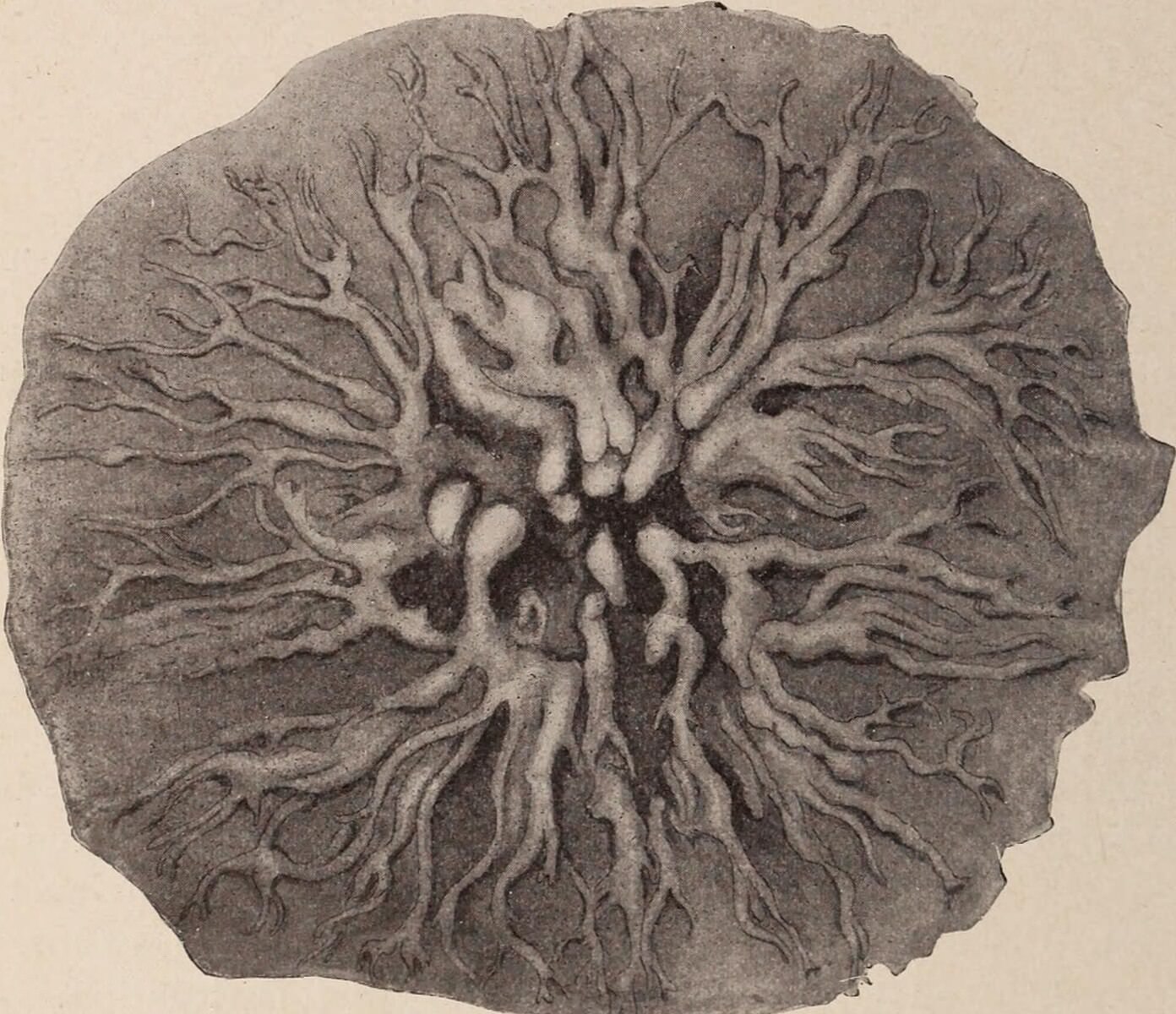
Birth of Fertility Doctor
American obstetrician and gynecologist John Rock, known as the "father of the birth control pill," was born on March 24, 1890, significantly contributing to the development and approval of oral contraceptives. Internet Archive Book Images/Wikimedia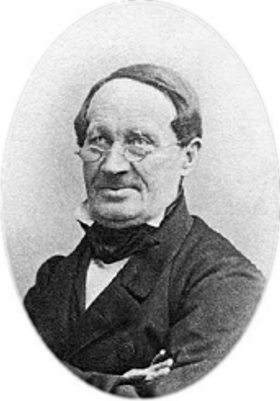
Discovery of Ruthenium
Russian chemist Karl Karlovich Klaus died on March 24, 1864, after discovering the element ruthenium in 1844, the last dense, inert, platinum-like metal to be found at the time. Красицкий В. А. Химия и химики: цена открытий // Химия и жизнь : журнал/Wikimedia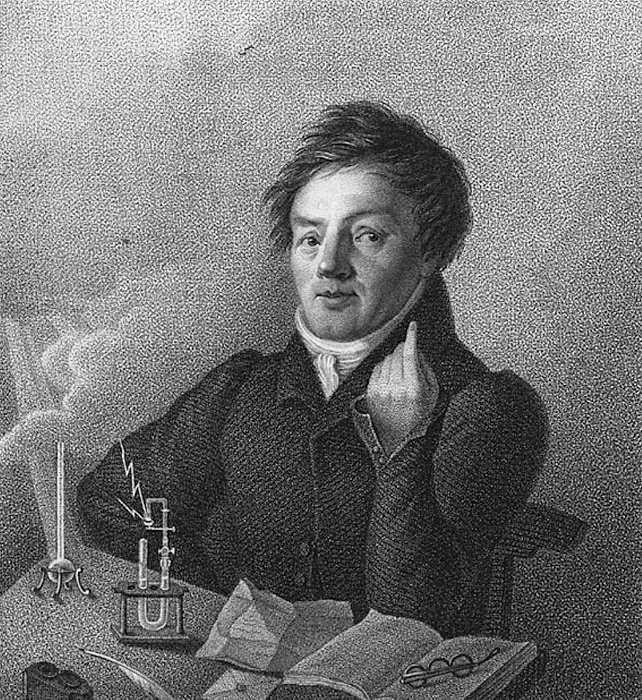
Triads and the Periodic Table
German chemist Johann Wolfgang Döbereiner, who observed triads of elements with related properties and atomic masses, died on March 24, 1849, after paving the way for the development of the periodic table. Carl August Schwerdgeburth, 1785-1878 (engraver), and Fritz Ries, 1826-1857 (painter)/Wikimedia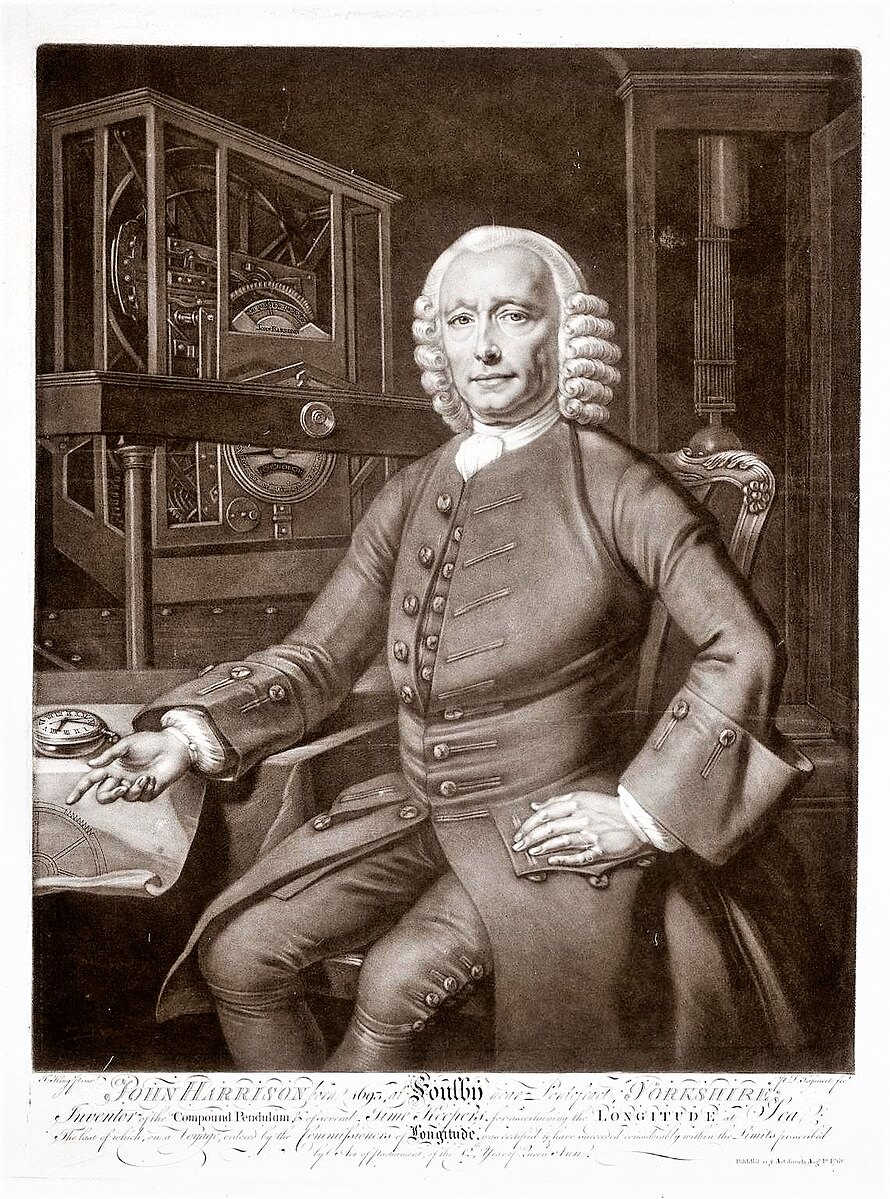
Solving the Longitude Problem
English horologist John Harrison, the inventor of the first practical marine chronometer that enabled accurate calculation of longitude at sea, died on March 24, 1776, after winning a prize for this groundbreaking achievement. Engraved from the oil painting by Thomas King/Wikimedia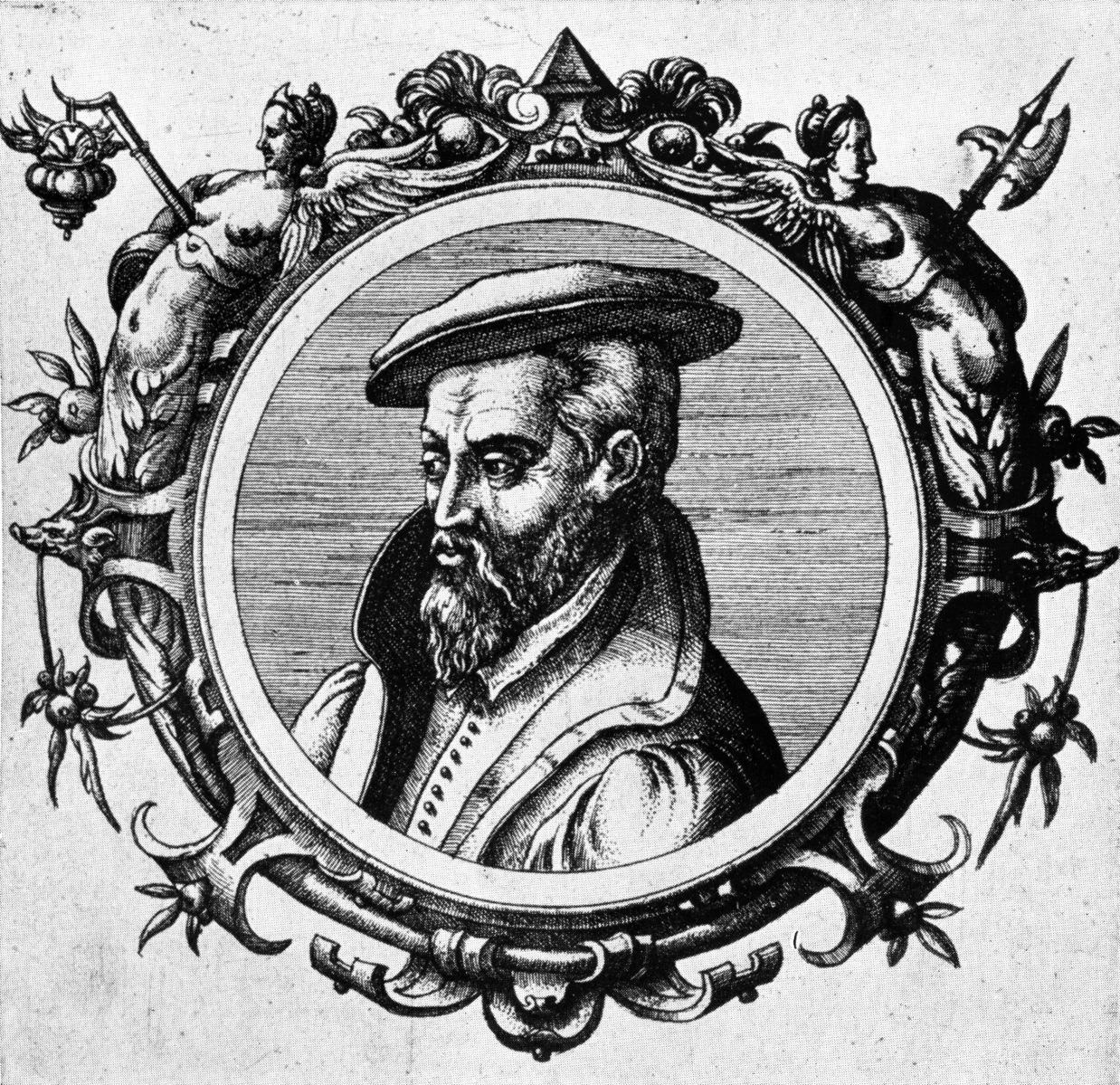
Birth of the "Father of Mineralogy"
Georgius Agricola, the German scholar known as the "father of mineralogy," who founded the natural science of minerals upon observation rather than ancient theories, was born on March 24, 1494. Georg Agricola (Bauer) 1494-1555/Wikimedia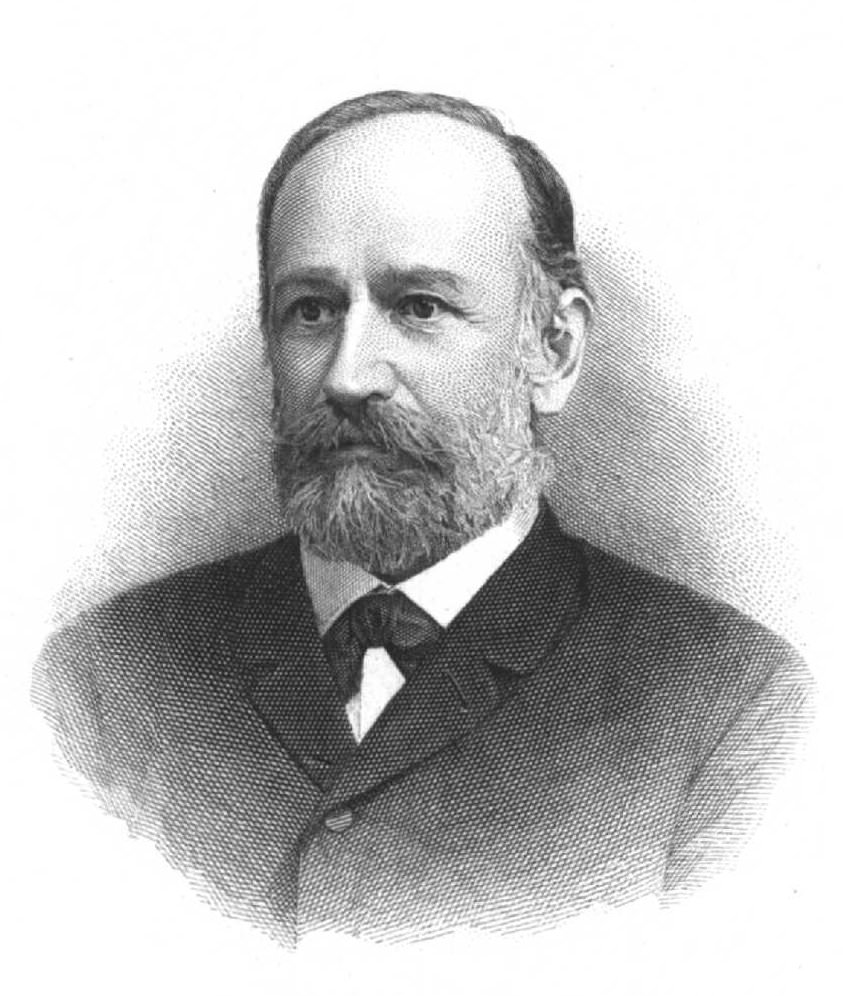
Pioneering Spectroscopy Work
On March 24, 1835, Josef Stefan, the Austrian physicist who proposed the law of radiation (Stefan's law) relating energy radiated by a black body to its temperature, was born, making significant contributions to the field of thermodynamics. K. Schönbauer/Wikimedia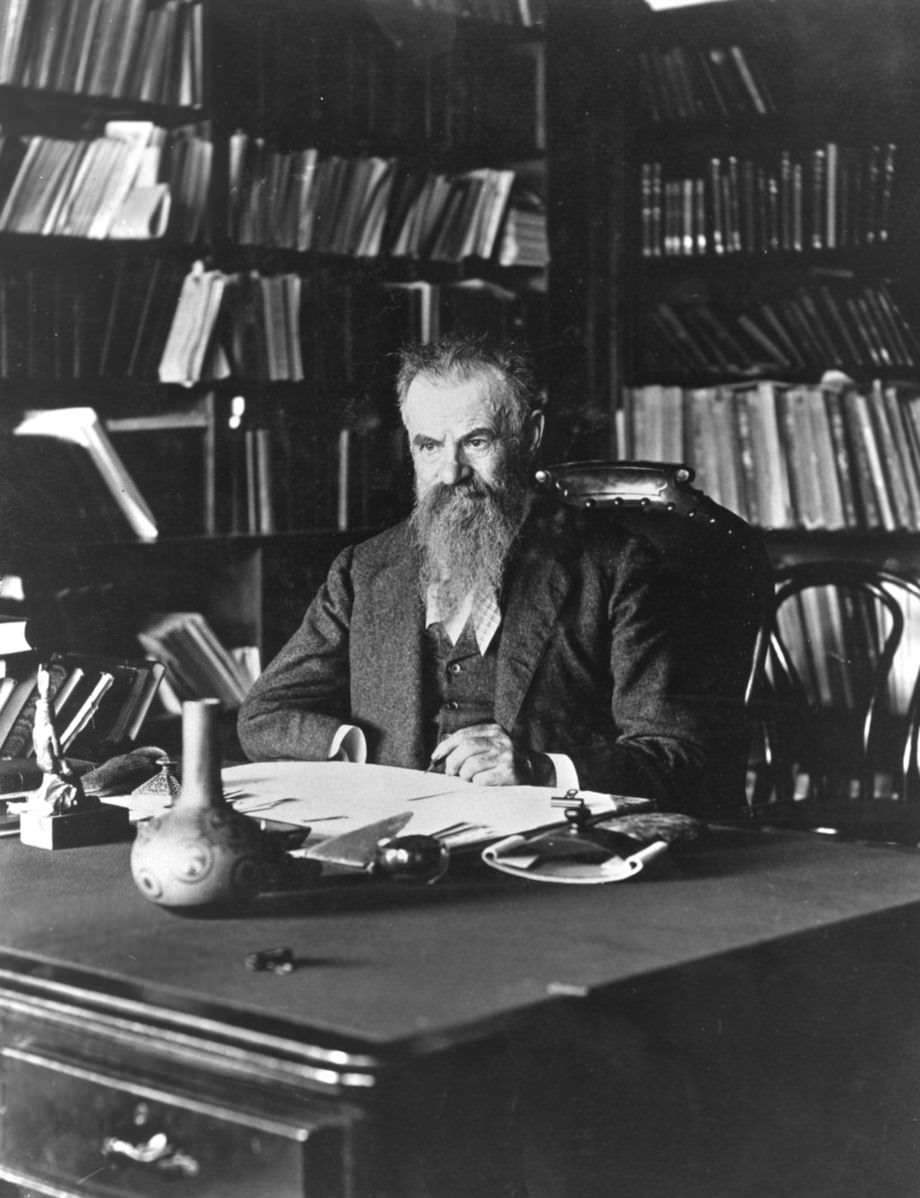
Exploring the Colorado River
American geologist and ethnologist John Wesley Powell, who led the first expedition down the then-unknown Colorado River through the Grand Canyon in 1869, was born on March 24, 1834. Photo courtesy of Smithsonian Institution/Wikimedia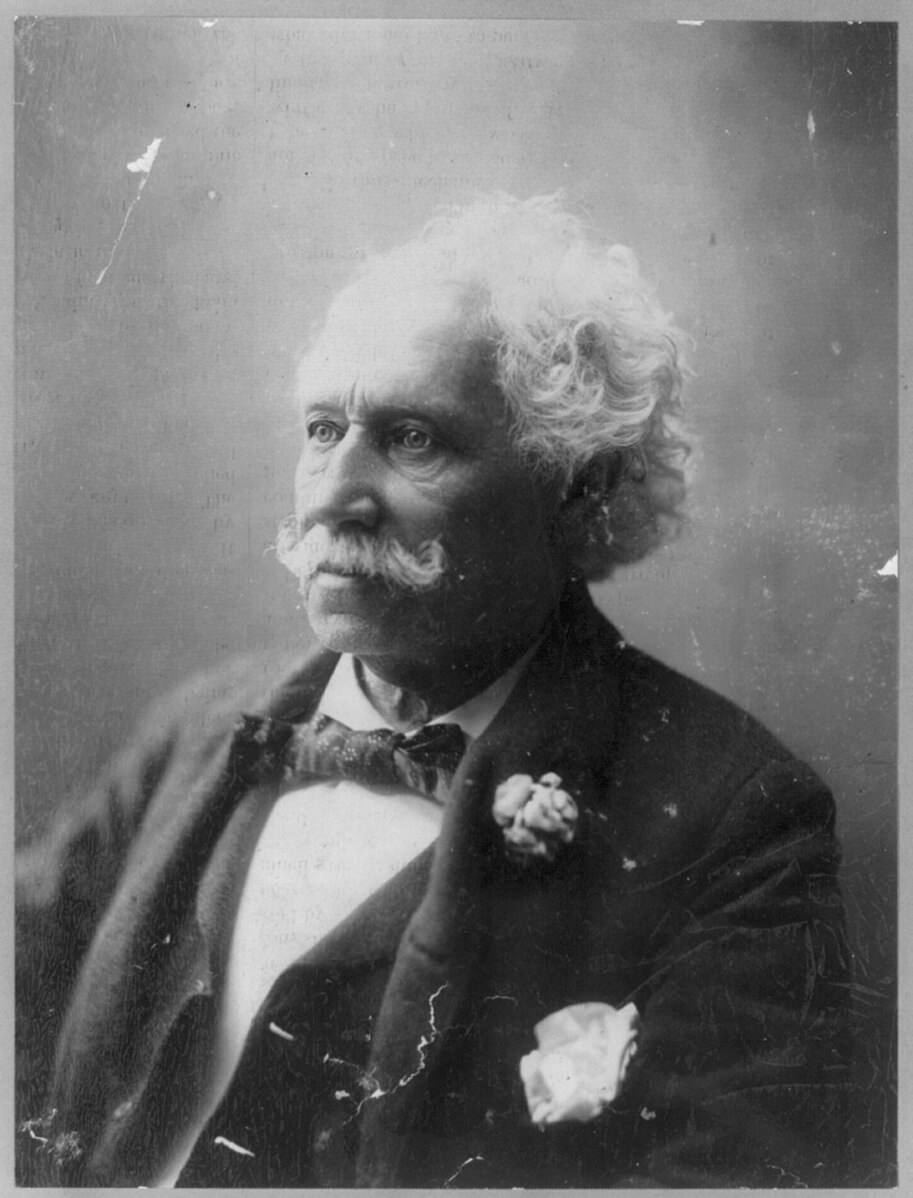
Eccentric Reformer's Birth
George Francis Train, an American businessman and eccentric reformer known for establishing horse tramways in London and potentially inspiring Jules Verne's "Around the World in 80 Days," was born on March 24, 1829. Miscellaneous Items in High Demand, PPOC, Library of Congress/Wikimedia